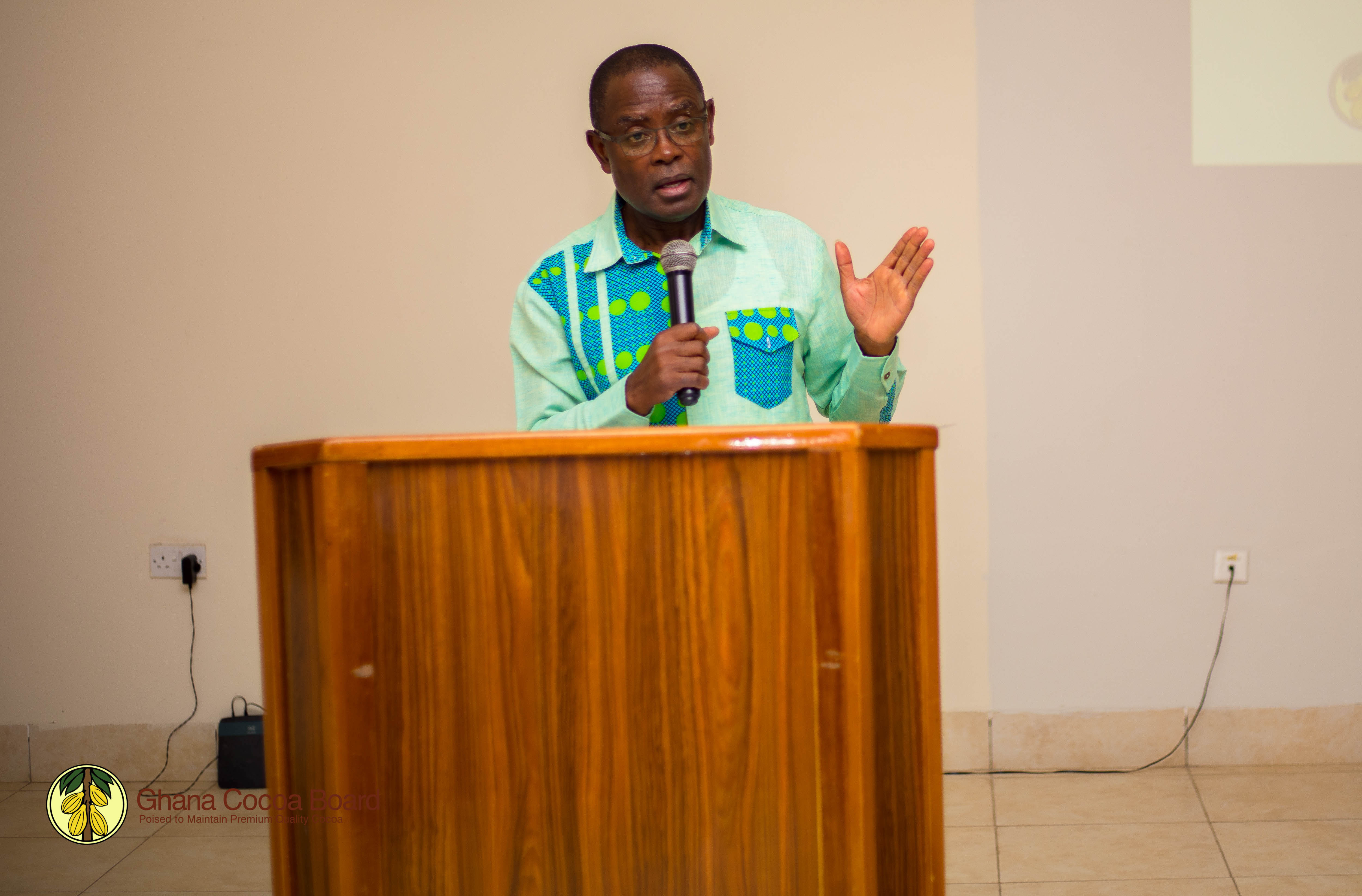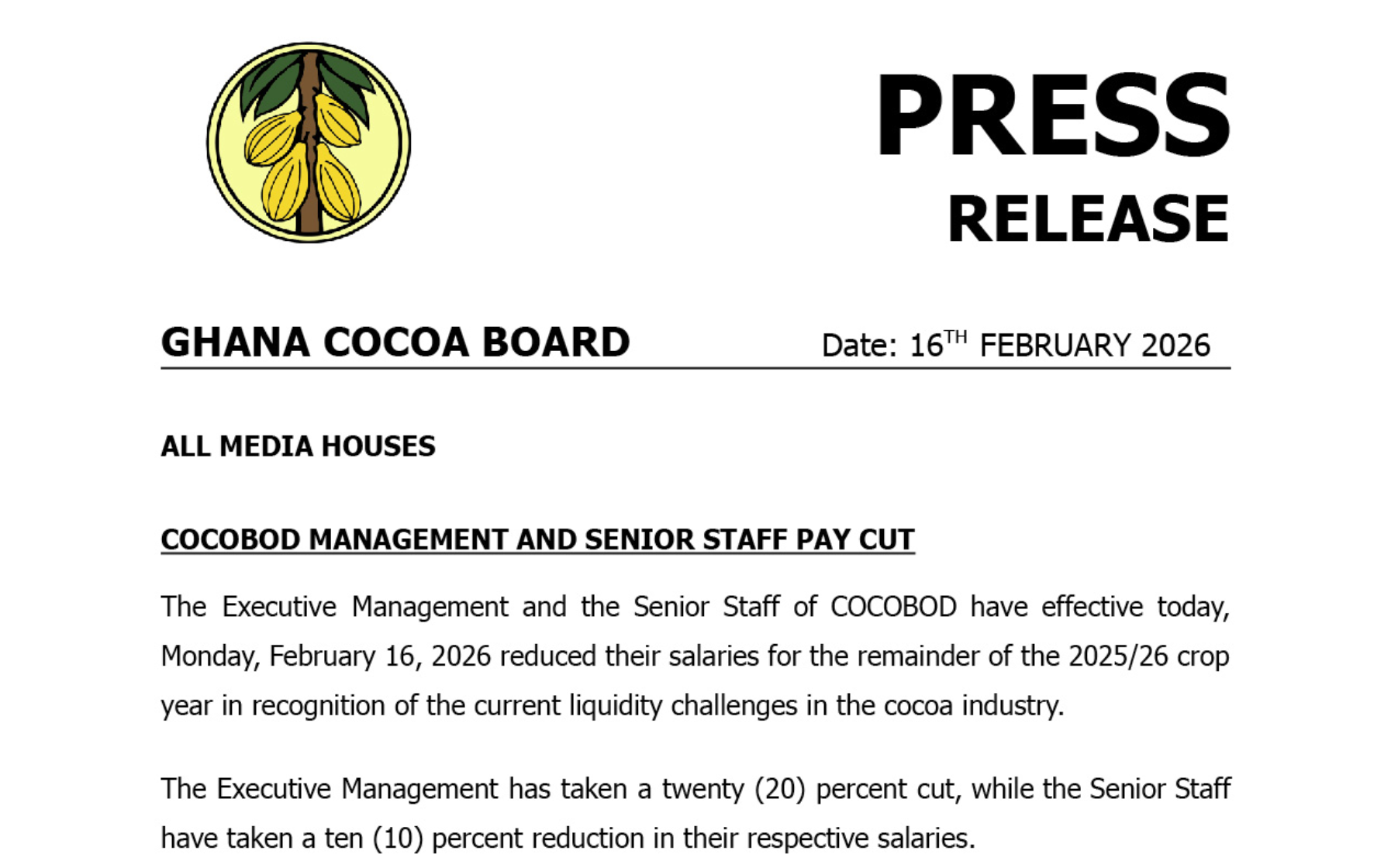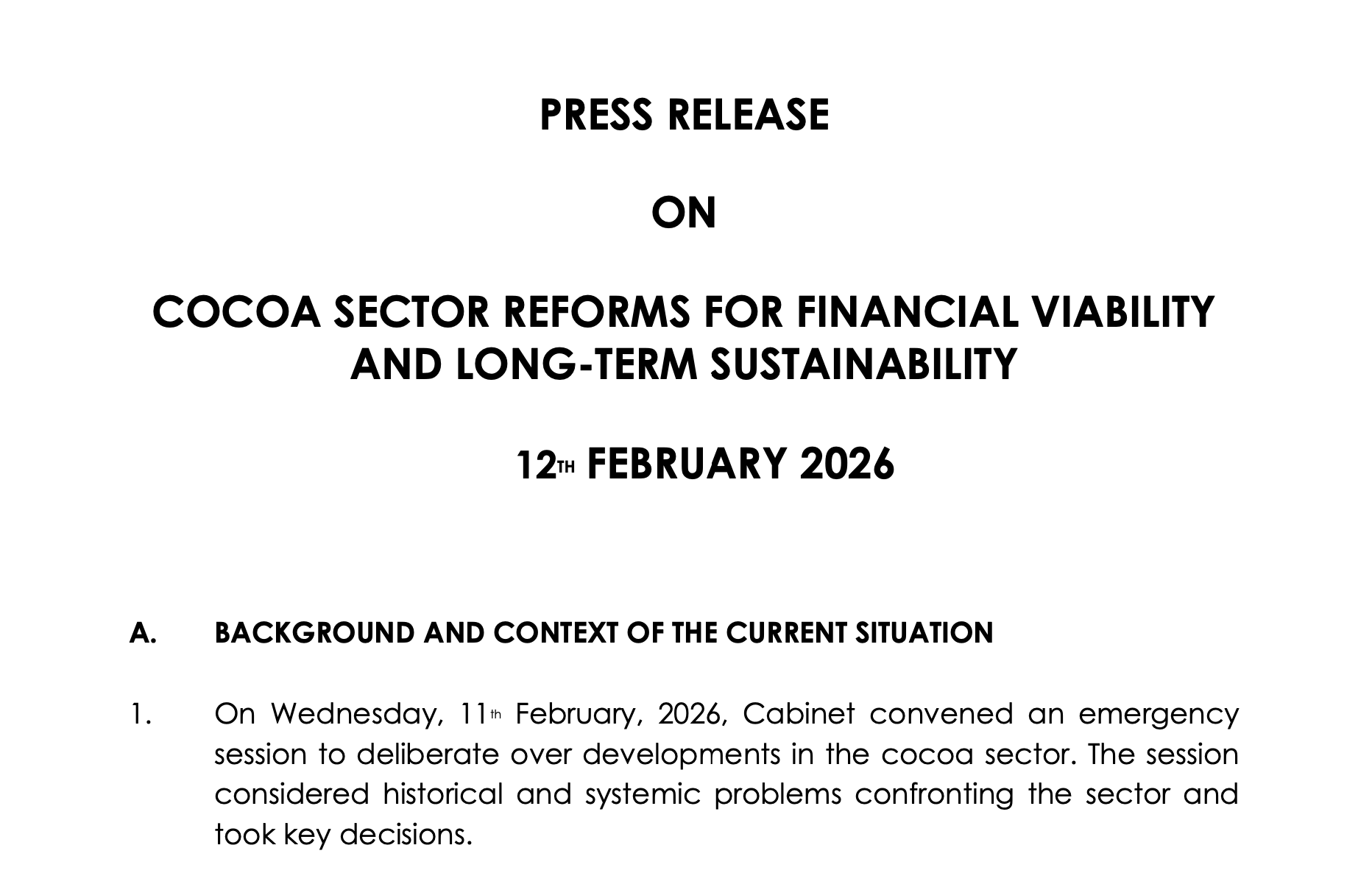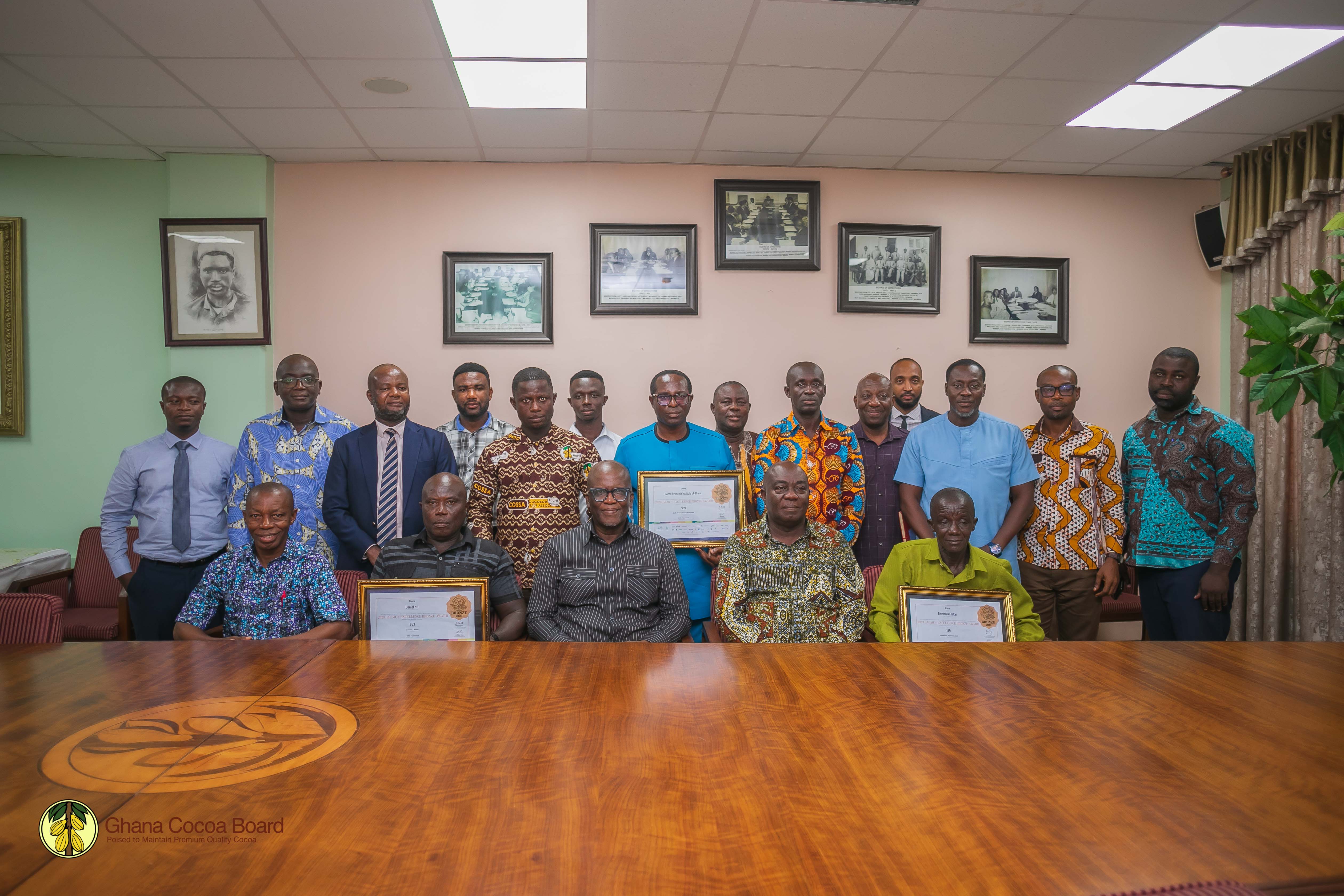COCOBOD ON COURSE TO ACHIEVE GOALS OF GHANA COCOA TRACEABILITY SYSTEM (GCTS)

Date: 30th June 2023
Dr. Emmanuel Opoku, Deputy Chief Executive in charge of Operations at Ghana Cocoa Board (COCOBOD), has given the assurance that Ghana would continue to sell cocoa to the European Union considering the significant progress made in efforts to achieve the goals of the Ghana Cocoa Traceability System (GCTS).
He, therefore, urged all stakeholders to come on board and play their respective roles in ensuring that Ghana becomes the leading producer of traceable cocoa.
Dr. Opoku said these at a COCOBOD/EU/GIZ-SCISP Ghana Cocoa Traceability System (GCTS) Stakeholder Workshop held at Elmina in the Central Region.
According to him, as part of modalities to test Ghana's readiness to meet the EU regulation passed into law on 29th May 2023, COCOBOD is collaborating with GIZ to pilot the GCTS in the Assin-Fosu Cocoa District to demonstrate the functionality of the system.
This workshop, therefore, offered the platform to inform relevant stakeholders including, farmers, purchasing clerks and Licensed Buying Companies (LBCs) in Assin-Fosu, of their roles in, and contributions to a full roll-out of the GCTS.
In 2019, COCOBOD began the development of a Cocoa Management System (CMS), a seamless system that captures the bio-data of all cocoa farmers, household information, and the shapefiles of individual cultivated cocoa areas.
Dr. Opoku disclosed that COCOBOD had so far measured 1,239,169 farms with a total of 1380,566 hectares belonging to 761,753 farmers. He said the CMS has embedded, in it, a Ghana Cocoa Traceability System (GCTS) that will ensure that all of Ghana’s cocoa beans are traceable from the port to the plot of land on which they were produced.
“The operationalisation of the GCTS will help to address the phenomenon of cocoa-driven deforestation, prevent farmers from producing cocoa from protected forests, and improve the visibility of the cocoa supply chain to ensure that the consumer is assured of the best production practices”, he added.
In terms of benefits, Dr Opoku touted the benefits of the of the system indicating the CMS implementation would revolutionise cocoa farming in Ghana and make it attractive to the financial sector and input suppliers. The effort would also promote financial inclusion, the emergence of crop insurance, and the design and implementation of an input credit system in Ghana's cocoa sector.
“CMS will make it possible to collect farm data in real-time, with a spatial dimension allowing for productivity and yield output calculations in comparison to seasonal forecasted yields. This makes it possible to detect sourcing from protected areas and national parks. If, throughout a season, a farmer located outside a deforestation area is selling at a rate that will go far beyond his forecasted yield output, then much of the cocoa being sold may be coming from unauthorised areas (Forest Reserved/Parks etc..). Accordingly, this can be flagged and alerted, and remediation measures can be put into place,” he added.
Dr. Opoku urged the Licensed Buying Companies (LBCs) to ensure that their Purchasing Clerks (PCs) register on the CMS to bring the project to a successful conclusion.
Madam Claudia Maier, Country Coordinator for the GIZ Sustainable Cocoa Initiative Support Programme (SCISP) expressed her outfit’s willingness to provide expertise and financial support to ensure the success of the implementation of the traceability system. She said not only Ghana, but the entire cocoa world was looking forward to this system adding that the piloting of the system at Assin Fosu in the central region will start in September 2023.
Central Regional Chief Farmer, Nana Kwasi Ofori, said data is paramount for effective planning and that the introduction of the CMS would help COCOBOD to work with accurate data and improve efficiency in its operations. He pledged the support of all farmers in making the process a success.
Mrs. Mary Yaa Allotey, Central Regional Administrator of COCOBOD, said the traceability system would promote quality control, operational efficiency and customer satisfaction. She was therefore hopeful that the workshop would make participants better equipped and help them to contribute meaningfully to all the interventions being implemented by COCOBOD for a more improved cocoa sector.
Other News / Articles you might be interested in.

COCOBOD MANAGEMENT AND SENIOR STAFF PAY CUT
The Executive Management and the Senior Staff of COCOBOD have, effective today, Monday, ...
Read More
PRESS RELEASE ON COCOA SECTOR REFORMS FOR FINANCIAL VIABILITY AND LONG-TERM SUSTAINABILITY
A. BACKGROUND AND CONTEXT OF THE CURRENT SITUATION 1. On Wednesday, 11th February, 2026, ...
Read More
COCOBOD HONOURS GHANAIAN COCOA FARMERS FOR EXCELLENCE AT INTERNATIONAL COCOA AWARDS
Management of Ghana Cocoa Board (COCOBOD) has honoured the winners of the 2023 International ...
Read More